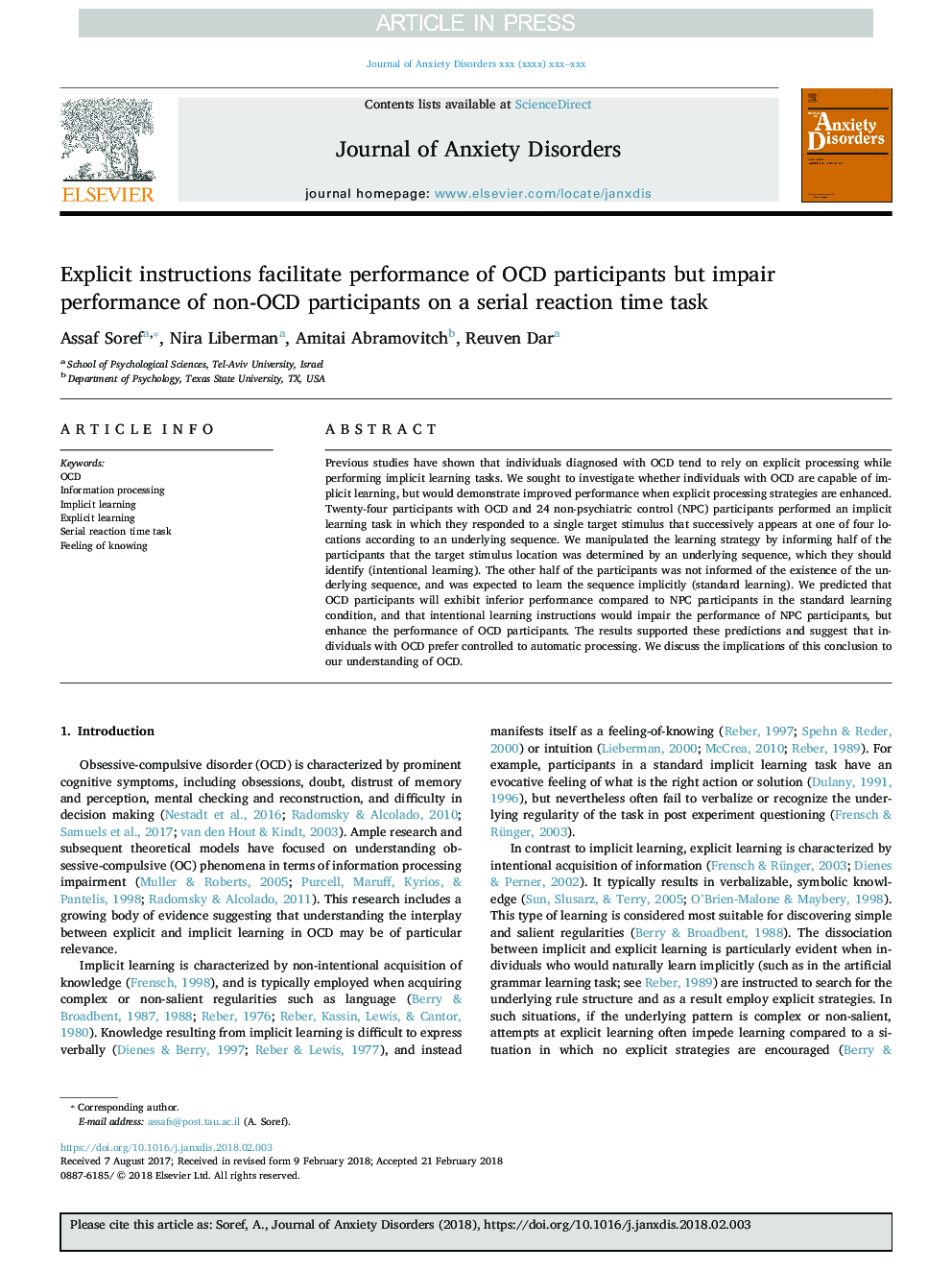| Article ID | Journal | Published Year | Pages | File Type |
|---|---|---|---|---|
| 7266951 | Journal of Anxiety Disorders | 2018 | 7 Pages |
Abstract
Previous studies have shown that individuals diagnosed with OCD tend to rely on explicit processing while performing implicit learning tasks. We sought to investigate whether individuals with OCD are capable of implicit learning, but would demonstrate improved performance when explicit processing strategies are enhanced. Twenty-four participants with OCD and 24 non-psychiatric control (NPC) participants performed an implicit learning task in which they responded to a single target stimulus that successively appears at one of four locations according to an underlying sequence. We manipulated the learning strategy by informing half of the participants that the target stimulus location was determined by an underlying sequence, which they should identify (intentional learning). The other half of the participants was not informed of the existence of the underlying sequence, and was expected to learn the sequence implicitly (standard learning). We predicted that OCD participants will exhibit inferior performance compared to NPC participants in the standard learning condition, and that intentional learning instructions would impair the performance of NPC participants, but enhance the performance of OCD participants. The results supported these predictions and suggest that individuals with OCD prefer controlled to automatic processing. We discuss the implications of this conclusion to our understanding of OCD.
Keywords
Related Topics
Health Sciences
Medicine and Dentistry
Psychiatry and Mental Health
Authors
Assaf Soref, Nira Liberman, Amitai Abramovitch, Reuven Dar,
